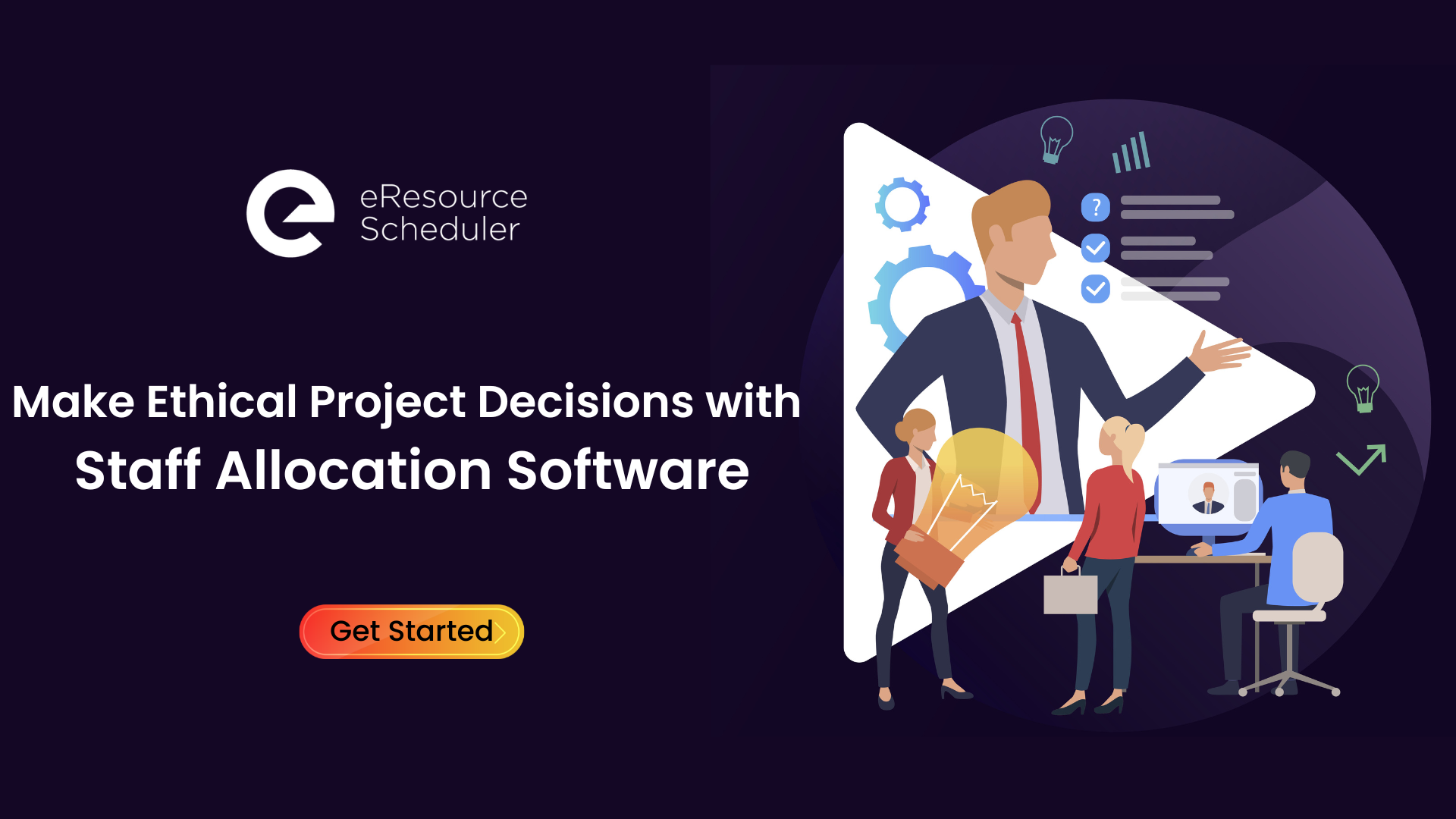
As a project manager, using staff allocation software can help you efficiently manage resources and avoid ethical issues such as improper use of funds or tampering with product safety data. By automating scheduling and optimizing employee assignments, you can ensure that your projects are completed on time and within budget, while also maintaining the highest ethical standards. Don't take chances with your projects - use staff allocation software to stay on top of resource management tools and ethical issues.
Join us as we explore common ethical situations you might face in project management. We identify the different ways you can go about resolving them, and also present an ethical decision making framework you can apply to project management.

Ethical issues are crucial to your overall competency as a project manager and reputation. According to PMI, “Ethics is about making the best possible decisions concerning people, resources, and the environment.”
There are several ethical boundaries you might experience in project planning and execution. Sometimes, lines are crossed to ensure a project is delivered on time, or managers turn a blind eye to questionable activities in order to satisfy client needs. The larger and more complex the project, higher the chances of its ethics being compromised.
Some of the most common ethical issues faced in project management are highlighted below.
While it’s common for things to go awry in projects, there is a way to safely navigate these murky and sticky situations. We look into a framework you can use for ethical decision-making, next.

Having an ethical mind isn’t the only requisite required for project decisions. A practical and repeatable process is necessary. This framework will make ethical decision making transparent and something that can become part of a company’s core values.
The steps you need to follow are:
The key to making the right ethical decision is having all the facts and context right. Speak to all involved stakeholders and hear their stories. Also, understand the relevant ethical, legal, and cultural norms that could apply. You can use metrics from a resource allocation software, your employer's code of ethics booklet, and PMI’s Code of ethics as a part of your data collection.

Once you have all the information in front of you, list out what paths you can take to address the issue. For each option, proceed to make a list of pros and cons. You can also categorise each option by its outcome zone: completely acceptable, questionable, and clearly not acceptable. Feel free to reach out to experts, consultants, or even friends to benefit from their knowledge. It can help you uncover new possibilities.
By following the steps mentioned above, you will also be able to identify which path you are leaning towards. Experts say the best way to come up with alternatives is to ask questions. By asking questions, you will be able to uncover options and gain perspectives you might not have considered.
Questions that can help you come up with viable resolutions include:
Before making the final call, apply your set of ethical standards. This step involves asking questions like “Is the impact fair and equal for all parties?” and “Does this path match your intuition and rationale?” Some people call this part of the process the “front page test.” Would you be able to justify your reasoning to others? How would you feel if your decision was the headline in tomorrow’s newspaper? Use these guidelines to finalise your choice.
Finally, it’s time to make your decision and share it with all those impacted. This could include team members, higher management, clients, vendors, or even the media. You should also be able to share your reasoning behind it with all involved members and feel good about it. Sharing your thought process will provide clarity and help you gain buy-in from the team.
This ethical decision-making process seems pretty straightforward, but the more complex the project, the more challenging it is to weigh all your options. However, consistently using this framework will make it second nature. And eventually, it will carry you through some of the trickiest and most uncomfortable dilemmas.
Staff allocation software can help you make ethical decisions easier. An employee management tool is a wealth of information and data. It tracks employee information, productivity, capacity, and budget — all elements of a project in a centralized place. You can use this data to remain objective and also gain a real understanding of any ethical dilemma you may face.
With staff allocation software, you can assign tasks and responsibilities in a fair manner, ensuring everyone’s workload is balanced (no one is over capacity). It also displays accurate costs associated with projects through its financial reports. All the metrics are presented in real time, so there is no chance of covering up numbers. The project progress reports also allow managers to swiftly step in and take the necessary corrective actions.

Lastly, it can also help you accurately forecast resources for projects, so that you, as a project manager, have the most accurate grasp on what your team can deliver or not. Complex ethical problems rarely come with any warnings, but we can do our best to minimize risks and their occurrence. eRS, can be your trusted staff allocation software provider. Our AI-driven platform will make it easier for you to handle and resolve ethical misconduct.
Start our 14-day trial and make your projects more effective and ethically sound.
Also read:
Resource allocation in healthcare - why is it needed?
How resource allocation software can transform your resource management
The future of resource allocation apps: trends, technologies, and transformations
Resource allocation tools in construction - challenges and recommendations
How to decentralize your organization effectively with allocation software?
Plan Smarter. Schedule Faster.
Join thousands already using eResource Scheduler to align teams, time, and tasks seamlessly.